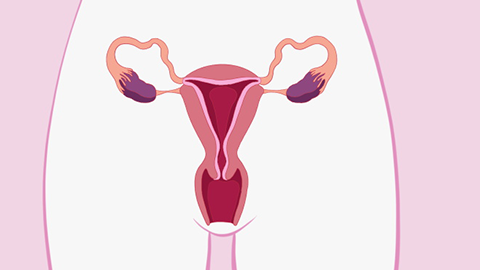What causes poor uterine contractions?
Generally, poor uterine contraction may be caused by hormonal fluctuations, physical weakness, excessive stretching of uterine muscle fibers, intrauterine infection, uterine malformation, and other factors. If discomfort symptoms occur, it is recommended to seek timely medical treatment at a qualified hospital. Detailed explanations are as follows:
1. Hormonal Fluctuations
After childbirth or miscarriage, insufficient or imbalanced secretion of hormones related to uterine contractions, such as oxytocin and prostaglandins, may affect the normal contraction function of the uterus. It is important to maintain a regular lifestyle, avoid staying up late, and promote stable hormone secretion.
2. Physical Weakness
Long-term malnutrition, lack of exercise, or poor postpartum recovery can weaken the strength of uterine muscle contractions, affecting contraction function. A balanced diet rich in vitamins and minerals, such as fresh vegetables, fruits, milk, should be emphasized.

3. Excessive Stretching of Uterine Muscle Fibers
Multiples pregnancy, polyhydramnios, or macrosomia can cause excessive stretching of the uterine muscle fibers, making it difficult for the uterus to resume normal contraction after childbirth, which may lead to postpartum hemorrhage. Weight should be managed appropriately during pregnancy to avoid excessive fetal growth and polyhydramnios. If necessary, uterine contraction-promoting medications such as methylergonovine maleate injection, oxytocin injection, or motherwort injection may be used under medical guidance.
4. Intrauterine Infection
Infection of the uterine cavity by pathogens such as bacteria can cause inflammation that affects the uterine muscle layer, impairing contraction function. Symptoms may include fever, abdominal pain, and foul-smelling lochia. Anti-infective medications such as ceftriaxone sodium injection, metronidazole injection, or levofloxacin hydrochloride injection should be used under medical supervision. During treatment, maintain external genital hygiene, change sanitary products frequently, avoid sexual activity, and prevent worsening infection.
Uterine developmental abnormalities such as bicornuate uterus or uterine septum can disrupt coordinated uterine muscle contractions, leading to poor contraction function. This may manifest as prolonged menstruation or difficulty in menstrual blood discharge. Regular gynecological checkups are necessary to monitor uterine condition. If repeated bleeding or fertility issues arise due to uterine malformation, surgical correction may be considered after medical evaluation. Postoperative care includes rest, avoiding strenuous activity, and following medical advice for recovery.
In daily life, maintain good personal hygiene to prevent intrauterine infection; follow medical recommendations for postpartum or postoperative care to promote recovery; and maintain a positive mindset, avoiding excessive stress and anxiety.










